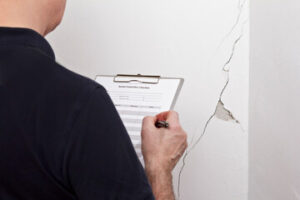Whether you are buying a house for the first time or you’re a seasoned homebuyer, it’s always a good idea to get a professional home inspector to check out the property before you make your purchase. There are a number of things you need to know before hiring someone, from the type of work they perform to what kind of communication skills they have.

Whether you’re buying a new home or selling an old one, a foundation home inspection is a must. The inspection can save you time, money, and headaches down the road. There are a few signs to look for. Read on Home Inspector Colorado Springs CO for more info.
Considering how important your foundation is, you’ll want to choose an inspector who is well-versed in the industry. A reputable company should be licensed and have at least one certification in the state in which your home is located.
Among the signs you should look out for is a crack at the junction of your ceiling and wall. This is a sign of movement within your foundation. It may be a structural issue, or it could simply be the result of the weather.
A slanting floor is also a sign of a foundational problem. This is not a normal occurrence and can indicate a structural issue.
Having a large vertical crack in your wall is not a normal occurrence and should be taken seriously. These are usually caused by a failure of the concrete at the time of construction.
Using a commercial-grade dehumidifier in your crawlspace can keep your crawlspace dry. This will help prevent mold and other pests from settling in.
Whether you’re buying or selling a home, you’ll want to have an electrical system that’s up to code. During a home inspection, it’s common to find issues that could affect your safety. But many problems aren’t deal breakers. You may be able to address them after closing.
If you’re unsure about what to look for during your inspection, it’s important to make a list of things that you’d like to see checked. During your inspection, you’ll be examining the entire electrical system. It includes the service mast, the basement, the central air conditioning, and the heating system.
You’ll also need to inspect the electrical panel and electrical boxes. You’ll need to be sure that they’re insulated and securely fastened. If they’re not, they could cause an electrical shock. You’ll need to have a licensed electrician fix the problem.
During your home inspection, you’ll also be checking for ground fault circuit interrupters (GFCIs). They’re designed to shut off if they sense an overload of electrical current. They’re usually installed in areas that have water or are in an unfinished basement.
If you have an older home, it’s possible that the wiring is in poor condition. Aluminum wiring was used in many houses in the 1960s and 1970s but is now considered unsafe. These types of wires tend to overheat and burn more easily.
Whether you’re buying a new home or selling your existing one, it’s important to have your plumbing inspected. Not only will this prevent water damage, but you can also find problems before they become big.
Your inspector will check all the areas where water is used in your home. This includes your floors, walls, ceilings, and even the pipes. Some of these areas may require maintenance, while others can be replaced. The home inspector will send you a report with pictures. It’s important to read through the report carefully, as problems can be missed.
Your home inspector will be checking for water leaks, faulty faucets, and other issues. Your inspector will also be looking for corroding or damaged pipes. These issues can lead to contaminated water, which is not only damaging to your health but can affect the environment.
Most plumbing issues are fairly easy to fix. If you’re concerned about a leak or slow-draining sinks, a professional plumber can diagnose the problem and suggest solutions. Some common problems include hair, soap, and toothpaste buildup. If these problems persist, they may require the dismantling of your entire plumbing system.
When you have a plumbing inspection done, your inspector will be able to pinpoint the cause of the problems. For instance, your toilet flapper may not be sealing properly, which can result in a continuous run.